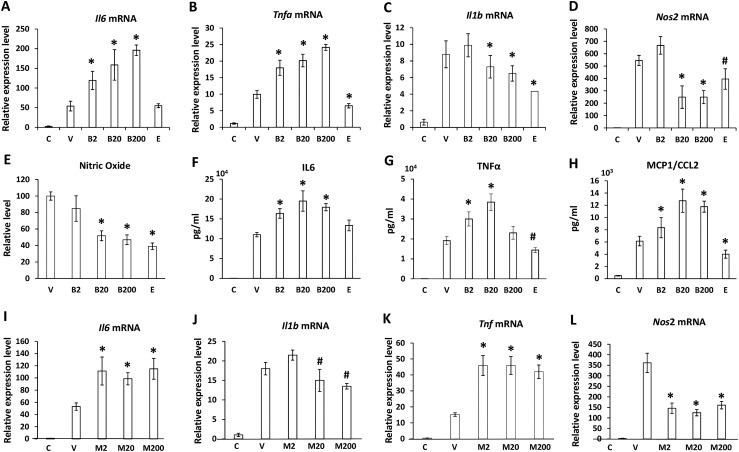Figure 1.
BPA or phthalate exposure in vitro adversely affects the inflammatory phenotype of adult peritoneal macrophages. Peritoneal macrophages exuded from adult female mice were pooled and cultured in the presence of 2, 20, or 200 ng/mL BPA (B2, B20, B200), MEHP (M2, M20, M200), 10 nM estradiol (E), or vehicle (V) for 48 hours, followed by inflammatory activation with 150 U/mL IFN-γ and 10 ng/mL LPS for an additional 12 hours. Naïve macrophages without treatment served as unstimulated controls (C). (A–D and I–L) The relative level of gene expression was assessed by qPCR. (E) Griess assay was performed to measure nitric oxide levels in the cultural supernatants. (F–H) Flow cytometry–based cytometric bead arrays were performed to measure the cytokine levels in the culture supernatants. Values represent average fold induction (± SD) in the treated samples in comparison with the nonstimulated controls (C) from three independent treatments. Statistical significance in BPA- or MEHP-exposed samples vs vehicle-treated controls were analyzed by Student t test. *P < 0.01; #P < 0.05.

